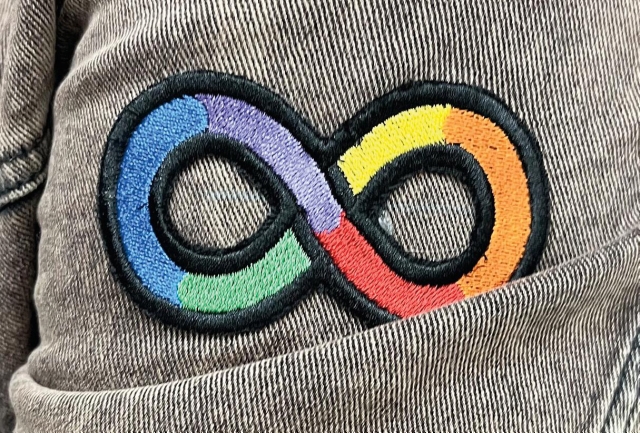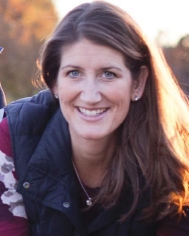OUR JOURNEY IN CAMO SHELLY HUHTANEN
Not Broken
Was I going to ignore my student's view and continue to think the same way? The answer was simple. Someone from my son's community had the ability to speak, and I needed to listen.
With my office reorganized at home, my bookbag dusted off and resupplied with dry-erase markers and a grade book, I began a new semester of teaching at the local university. This is the first time I have taught five courses and I’ll admit, I’m a little nervous about the workload. I keep telling myself it’s all about balance. I need to be there for Hayden when he needs to talk. He’s back in school and seven hours away. I try my best to be present during his calls, because every minute counts with him. With him away from home, I don’t have the opportunity to pop into his room and check on him, like I did this past summer. I need to be there for Broden and be available for parent meetings with his BCBA (Behavioral Therapist). We have monthly meetings to discuss his progress, and I also need to update the programs we are working on at home. Each morning, I’m helping Broden through a 40 to 50 step process on how to shower. It takes time, but it will be worth it in the end. Broden’s journey to living a more independent life is crucial. There are only 24 hours in a day and I need to squeeze in some time to eat and sleep. In a nutshell, it has been a challenge, but a challenge worth taking.

INFINITY AND BEYOND: My student with autism reached her arm out and showed me the infinity symbol patch on her jacket, "This is the patch I was talking about. It shows that we are unique, but we are whole."
At the beginning of each class, I have the students introduce themselves. They usually state: where they're from, how many siblings they have, what degree program they are
interested in pursuing, and which dorm they live in for the year. Occasionally, I'll have a student who chooses to share a little bit more than others. That is greatly appreciated, because it can start to build connections with other students in the class. I'll introduce myself and talk about my family, and my interests. Usually, when I discuss Broden having autism, and the fact that I write for a magazine, I'm either greeted with
uncomfortable stares because they are not familiar with autism, or they will later come up to me after class and say they know someone with a sibling with autism. This semester was different.
This semester I had a student who introduced herself as someone who had autism. After I introduced myself, she raised her hand, “Your column is entitled, “Puzzles and Camo? That is offensive to the autism community. We are not broken. Therefore, we do not think a
puzzle piece represents our community. We identify with another symbol.” The class fell silent, and I squirmed a bit in my chair. I had never been challenged before in class about the topic, and certainly not by someone who had autism, “Interesting. I haven’t heard that before and thank you for sharing how you feel. I would love the see the infinity symbol in which you identify.” The student nodded. I could see some students in class look at each other. They weren’t used to this type of interaction in class, and especially not in the first week of school. After class was dismissed, the student approached me again, “We do not like the puzzle piece. Just because we are unique or different, doesn’t mean we are broken. It does not represent us.” I listened and nodded to show that I was listening to her, and acknowledged what she was saying. I told her again that I would love to see the colorful infinity symbol that she described. My student told me she had a jacket that had the symbol patch on it, and she would wear it to class the next time we meet.

I sat in an empty classroom waiting for my next class that day. How did I feel about what had just happened? Part of me was frustrated. Since Broden was diagnosed, I knew of the puzzle piece. I talk about inclusion. I'm passionate about representing marginalized